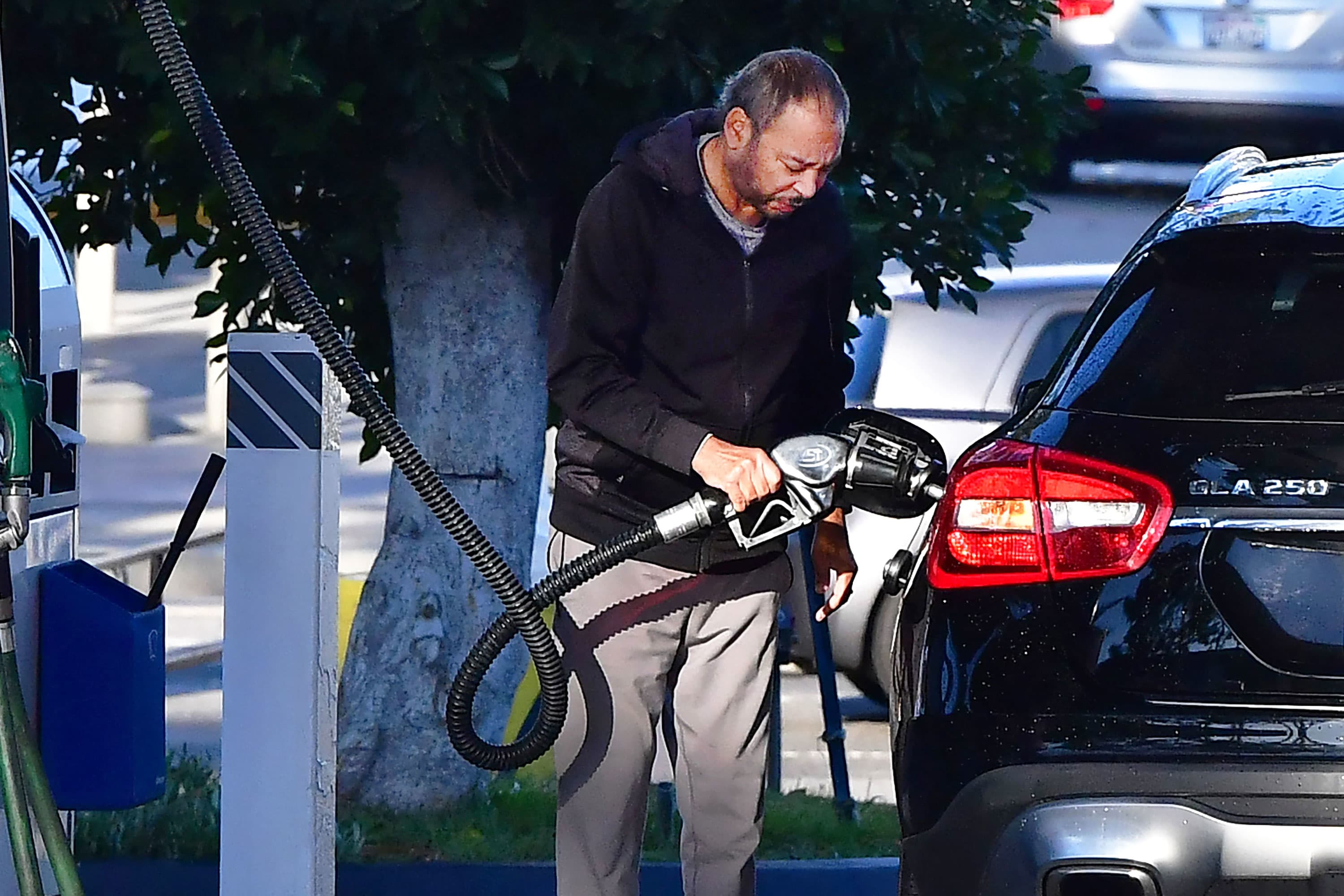The Biden administration announced it will suspend a federal rule that bars higher levels of ethanol in gasoline during the summertime. The move is intended to tamp down prices at the pump that have spiked during Russia’s war with Ukraine.
A look at how that decision to authorize year-round use of so-called E15 will impact gas supplies, prices, your car's engine and the environment.
WHAT IS ETHANOL?
Watch NBC 4 free wherever you are
Ethanol is a biofuel derived from fermented corn, wheat, grain sorghum, barley and potatoes. It can also be made from sugar cane or sweet sorghum.
In the U.S., ethanol is predominately corn-based, and required by federal law to be blended in the nation’s gasoline supply. Most gasoline sold in the U.S. is blended with 10% ethanol, also known as E10. Refineries can however seek waivers if they can show that meeting the ethanol quotas would create a financial hardship for their companies.
Get Tri-state area news delivered to your inbox with NBC New York's News Headlines newsletter.
WHAT IS E15 AND WHY IS BIDEN ALLOWING THE SALE OF IT?
In 2011, the EPA approved an increase of 15% ethanol blend for use in light-duty conventional vehicles of model year 2001 and newer, but prohibited gas stations from selling it between June 1 and Sept. 15 because of concerns that it adds to smog in high temperatures.
The EPA will issue an emergency waiver to allow widespread sale of E15, as the high-blend ethanol is known, during the summer months this year.
Senior Biden administration officials said the move will save drivers an average of 10 cents per gallon at about 2,300 of more than 150,000 U.S. gas stations that currently sell E15. Those stations are mostly in the Midwest and the South, including Texas, according to industry groups.
Lawmakers from both parties and ethanol advocates have urged Biden and the EPA to allow year-round sales of E15, calling it a cheaper and readily available domestic alternative to traditional gasoline. The U.S. has banned imports of Russian crude oil since the country's late February invasion of Ukraine, disrupting global markets and raising prices.
Environmental groups contend the U.S. Clean Air Act prohibits year-round sales of E15, and court challenges may be arise.
WILL E15 HURT MY CAR'S ENGINE?
E15, often sold at the pump as Unleaded 88, for its octane rating, can safely be used in all cars, trucks and SUVs from 2001 on. Those model years represent more than 90% of vehicles on U.S. roads.
The ethanol industry says the fuel is one of the most tested in history and has no effect on vehicle drivability. More than 20 billion miles have been driven in cars and trucks using Unleaded 88, a number that continues to grow.
WHAT IS THE PRICE OF E15 GAS?
E15, or Unleaded 88, typically sells for 10 cents a gallon less than E10, which is regular unleaded gas. The price difference between Unleaded 88 and conventional gasoline without ethanol, the premium high octane gas, is around 40 cents.
WILL I GET BETTER MILEAGE WITH E15?
There is no noticeable difference between the mileage achieved when using E15 and mileage when operating on E10.
CAN I USE E15 IN MY LAWNMOWER OR OTHER SMALL-ENGINE EQUIPMENT?
E15 has not been approved by EPA for use in non-automotive engines such as boats, motorcycles, lawn mowers and other small engines. E10, the standard ethanol formulation, is approved for small engines.
HOW WILL THIS AFFECT THE ENVIRONMENT?
Biden administration official say the short-term move will have little effect on the environment and that EPA will work with states to "ensure there are no significant air quality impacts through the summer driving season.''
Environmentalists questioned that, saying ethanol production contributes to greenhouse gas emissions and soil erosion and raises prices for corn and other crops.
A recent report in the Proceedings of the National Academy of the Sciences revealed that the federal ethanol mandate inflated corn prices by 30% from 2008 to 2016, made corn-based ethanol more carbon intensive than gasoline and increased annual fertilizer use by up to 8%, polluting waterways.
HAS EPA DONE THIS BEFORE?
The EPA has lifted seasonal restrictions on E15 in the past, including after Hurricane Harvey in 2017. The Trump administration allowed for year-round E15 sales starting in 2019, but a federal appeals court struck down the policy change in July 2021, saying the EPA overstepped its authority.
The decision dealt a significant blow to the ethanol industry and corn farmers who had anticipated increased ethanol demand through year-round sales of the higher blend.
Senior Biden administration officials said they expected the EPA waiver to survive a likely court challenge, saying that unlike the open-ended Trump rule, the action is limited to this summer and is prompted by a supply disruption caused by the war in Europe.
Greater use of E15 "would be helpful to the American people and to help alleviate some of the pain that we’ve seen since Russia launched this war against Ukraine,” EPA Administrator Michael Regan told a Senate committee last week.
But critics said the only emergency is Biden's dropping poll numbers.
Emergency fuel waivers are reserved for acute supply disruptions, such as those resulting from a hurricane, said Chet Thompson, president & CEO of the American Fuel & Petrochemical Manufacturers, which represents petroleum refiners.
“An additional three months of E15 sales won’t do anything to address high crude oil prices, and 98% of retail (gas) stations can’t even sell the fuel,'' Thompson said. “This is politics, not a real solution for drivers.”
More Gas Prices Coverage
Matthew Daly of the Associated Press contributed to this report.



